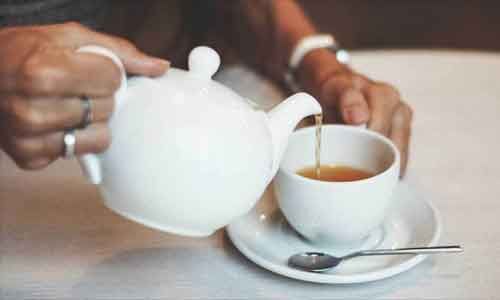- Home
- Medical news & Guidelines
- Anesthesiology
- Cardiology and CTVS
- Critical Care
- Dentistry
- Dermatology
- Diabetes and Endocrinology
- ENT
- Gastroenterology
- Medicine
- Nephrology
- Neurology
- Obstretics-Gynaecology
- Oncology
- Ophthalmology
- Orthopaedics
- Pediatrics-Neonatology
- Psychiatry
- Pulmonology
- Radiology
- Surgery
- Urology
- Laboratory Medicine
- Diet
- Nursing
- Paramedical
- Physiotherapy
- Health news
- Fact Check
- Bone Health Fact Check
- Brain Health Fact Check
- Cancer Related Fact Check
- Child Care Fact Check
- Dental and oral health fact check
- Diabetes and metabolic health fact check
- Diet and Nutrition Fact Check
- Eye and ENT Care Fact Check
- Fitness fact check
- Gut health fact check
- Heart health fact check
- Kidney health fact check
- Medical education fact check
- Men's health fact check
- Respiratory fact check
- Skin and hair care fact check
- Vaccine and Immunization fact check
- Women's health fact check
- AYUSH
- State News
- Andaman and Nicobar Islands
- Andhra Pradesh
- Arunachal Pradesh
- Assam
- Bihar
- Chandigarh
- Chattisgarh
- Dadra and Nagar Haveli
- Daman and Diu
- Delhi
- Goa
- Gujarat
- Haryana
- Himachal Pradesh
- Jammu & Kashmir
- Jharkhand
- Karnataka
- Kerala
- Ladakh
- Lakshadweep
- Madhya Pradesh
- Maharashtra
- Manipur
- Meghalaya
- Mizoram
- Nagaland
- Odisha
- Puducherry
- Punjab
- Rajasthan
- Sikkim
- Tamil Nadu
- Telangana
- Tripura
- Uttar Pradesh
- Uttrakhand
- West Bengal
- Medical Education
- Industry
Tea intake reduces abdominal aortic aneurysm risk, study finds

Sweden: A group of scientists led by Joanna Kaluza conducted a new study in which they showed that Tea intake was linked to a lower risk of abdominal aortic aneurysm (AAA). Because of its high antioxidant content, tea has the ability to reduce the incidence of AAA. The risk factors like hypertension, smoking, and hypercholesterolemia may alter this relationship.
The purpose of this study was to investigate the relationship between tea intake and the risk of total, ruptured, and non-ruptured AAA in men and women. This study's findings were reported in the British Journal of Surgery.
At the start of the trial, 45 047 men in the Cohort of Swedish Men (COSM) and 36 611 women in the Swedish Mammography Cohort (SMC) were aged 45–83 years. The COSM was founded in 1997 with all males from two central Swedish counties (Västmanland and rebro), and the SMC was founded in 1987–1990 with women from Västmanland. In 1997 and 2009, food frequency surveys were used to examine tea intake.
The results of this study were as follow;
1. During the 17.5-year follow-up period, 1781 AAA cases were identified using Swedish registries.
2. Tea drinking was shown to be inversely related to total AAA incidence in both men and women.
3. Women had a 23% reduced risk of AAA with each cup per day increase, but males had a 9% (0 to 17) lower risk.
4. Tea drinking was linked to a decreased incidence of AAA, both non-ruptured and ruptured.
5. The connection was moderated by smoking status, with tea drinking linked with a decreased risk of AAA among ex-smokers and never smokers but not in current smokers.
6. Tea intake was linked to a decreased risk in both participants with and without hypertension, as well as those with and without hypercholesterolemia.
In conclusion, the points highlighted in this study regarding the consumption of tea opens a lot of potential in many cases and their documented beneficial effects.
Reference:
Kaluza, J., Stackelberg, O., Harris, H. R., Björck, M., & Wolk, A. (2022). Tea consumption and the risk of abdominal aortic aneurysm. In British Journal of Surgery (Vol. 109, Issue 4, pp. 346–354). Oxford University Press (OUP). https://doi.org/10.1093/bjs/znab468
Keywords: hypercholesterolemia, hypertension, smoking, tea, British Journal of Surgery, aortic aneurysm, antioxidant, aneurysm rupture, diet, Joanna Kaluza
Medical Dialogues consists of a team of passionate medical/scientific writers, led by doctors and healthcare researchers. Our team efforts to bring you updated and timely news about the important happenings of the medical and healthcare sector. Our editorial team can be reached at editorial@medicaldialogues.in.
Dr Kamal Kant Kohli-MBBS, DTCD- a chest specialist with more than 30 years of practice and a flair for writing clinical articles, Dr Kamal Kant Kohli joined Medical Dialogues as a Chief Editor of Medical News. Besides writing articles, as an editor, he proofreads and verifies all the medical content published on Medical Dialogues including those coming from journals, studies,medical conferences,guidelines etc. Email: drkohli@medicaldialogues.in. Contact no. 011-43720751


